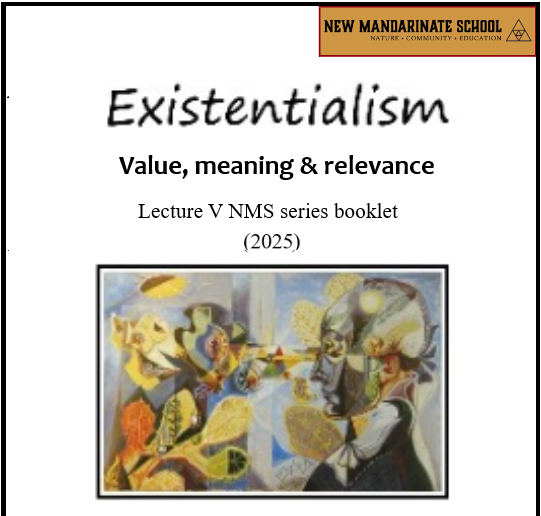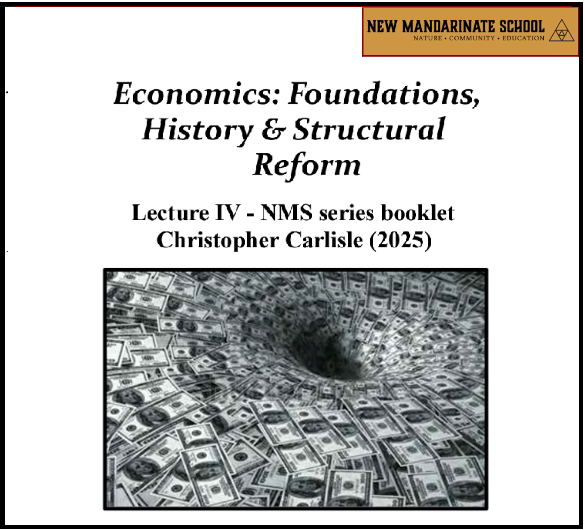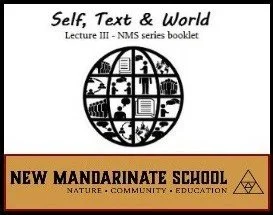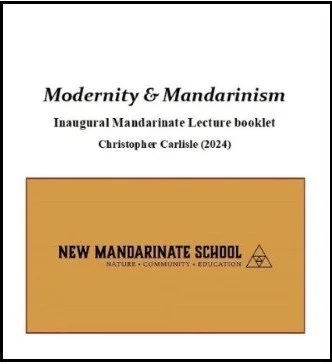

The Existentialism - value, meaning and relevance booklet stems from Lecture V in the 10-part NMS lecture series.
The booklet explores the history and development of existentialism within modernity, why and in what ways this tradition remains valuable to us and how it is relevant to understanding and responding to the problems we confront as a world today. It investigates the background, context and pre-history of the field, presents many of the significant figures and recurring themes and attempts to explain the contemporary relevance of existentialism through an NMS lens with a particular focus on our systems of higher education and their relationality to the public.
The booklet is 41 pages in length and also contains a handy (and extensive) glossary of terms for ease of reference.


The digital lecture booklet of Economics: Foundations, History & Structural Reform contains the essential points from the fourth lecture in the 10-part NMS lecture series. It is 48 pages in length and also has a handy (and extensive) glossary of terms for ease of reference. The booklet is available in the Store section of the website ($24: www.cmc3industries.com/store) and in hard copy form at the public lectures.
Economics: Foundations, History & Structural Reform focuses on how economics has been talked about and conceptualized in the past and how it may be thought about differently today on a local and a global level. The booklet takes us on a journey through some foundational ways to approach and understand economics and the history of how it has been theorised before going into the global side of the equation. It then concludes with information on the recommendations, critiques and analyses of the structural reform economists with additional information on relocalisation and community wealth-building.


The digital lecture booklet of Self, Text & World contains the essential points from the third lecture in the 10-part NMS lecture series. It is 40 pages in length and also has a handy (and extensive) glossary of terms for ease of reference. The booklet is available in the Store section of the website ($24: www.cmc3industries.com/store) and in hard copy form at the public lectures. It continues many of the themes and issues contained in the foregoing lectures/lecture booklets and specifically explores:
- hermeneutics: history, relationship to the text, interpretation, fusion of horizons, reflexivity, listening, etc.
- the relationship between self and world, self and text, text and world, self and other, etc.
- the personal/subjective side: Jungian individuation/integration, differentiation, adaptive thinking, emotional intelligence, how to assess others and oneself, etc.
- epistemology: what is knowledge? What do I know? What is the value/status of different types of knowledge? How may I assess what kind and whether I have ‘knowledge’? What does it entitle me to say or claim? What does it entitle/suggest/obligate me to do (action) in the world? Detachment/disinterestedness, objectivity, etc.
- alignment: alignment with the text in order to know and internalise it; alignment between text and world and self and world; alignment with your own thoughts/judgements/criticism/decisions
- discourse ethics, communicative rationality, dialogical learning, deliberative democracy, democratological neomandarinisation, etc.


The digital lecture booklet of Mandarin Studies, History & Theory contains the essential points from the second lecture in the 10-part NMS lecture series. It is 44 pages in length and also has a handy (and extensive) glossary of terms for ease of reference. It expands on the Inaugural NMS Lecture and booklet Modernity & Mandarinism and goes deeper into the theoretical underpinnings and practical implications of “democratological neo-mandarinisation”.
The booklet is available in the Store section of the website ($24: www.cmc3industries.com/store) and in hard copy form at the public lectures. It addresses:
mandarin learning points and dilemmas from history
the theory of “democratological neo-mandarinisation”, including bureaucracy, cratology and social ontology
valuable knowledge from the fields of sociology and social philosophy that is relevant to societal problems we face today
further expansion on values and qualities helpful towards community and individual empowerment and the “reimagining of the social”


The digital lecture booklet of Modernity & Mandarinism contains the essential points and information from the Inaugural New Mandarinate School lecture in a readable and accessible form. It is 38 pages in length and also has a handy (and extensive) glossary of terms for ease of reference. The booklet gives people a sense of what the NMS is all about and shows them some of the type of content that is contained in the 10-part mandarinisation course that we offer.
The digital booklet:
defines what the school is and what its purposes and values are;
provides legitimation of and justification for the school’s approach to education and knowledge;
defines what the content will be relating to themes and issues of knowledge and power, society and government, the humanities and social sciences, ‘mandarinisation’ and cratology/’democratology’, etc.;
presents some of the best quality knowledge available from the past and today related to these themes and issues (deeper analysis reserved for lectures post the Inaugural).



The booklet addresses the context of the Enlightenment in the 18th Century through the lens of great philosophers such as Kant and Hegel, and then pursues the influence and extension of their thought in the work of great critical thinkers like Marx, Sartre and Foucault.
The text is 48 pages in length and contains a recommended reading, viewing and website list at the end.